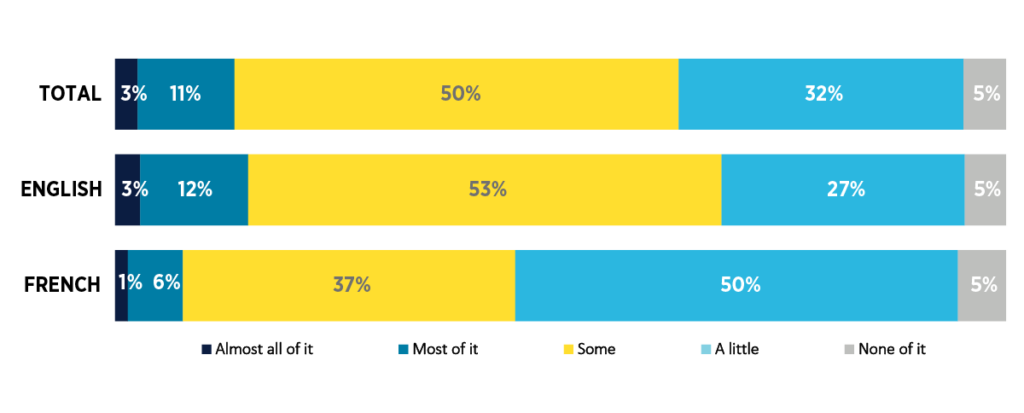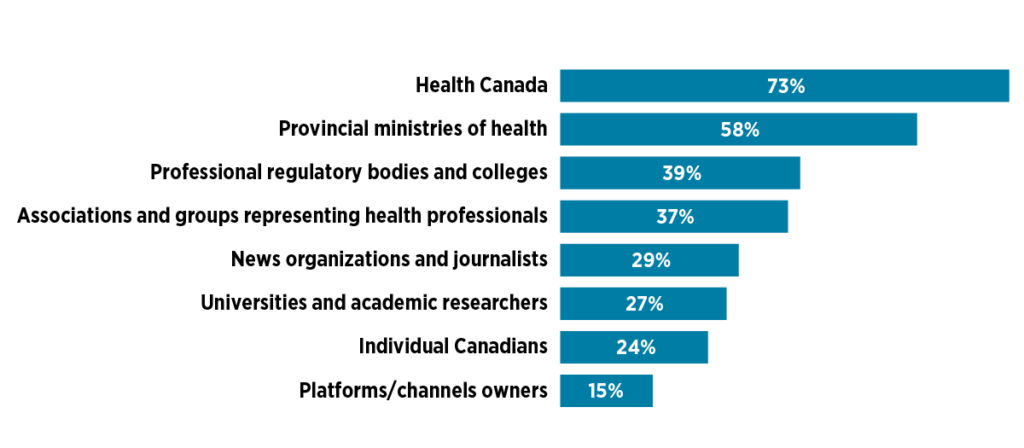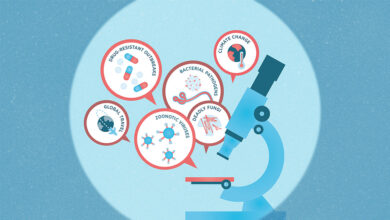
How health misinformation is taking a toll on well-being
Canadians encounter large amounts of misinformation about health and health systems, and it’s taking a toll on their well-being, on their interactions with health-care professionals and on their personal relationships, according to research released Jan. 30 from the Canadian Medical Association and Abacus Data.
In a survey of 2,500 Canadians between the ages of 18 and 75, almost two-thirds said some health information that they get from friends, family, news media or social media is inaccurate, and is at times deliberately intended to mislead. One in three believe inaccurate health information is becoming more prevalent over time.

They pegged social media as the least trustworthy source of health information, but acknowledged they spend a substantial amount of time on social media, particularly younger generations.
Millennials and Gen Zers were most likely to say they’d come across health and health system information that they later found to be false or misleading.
The hefty presence of health-related misinformation has real-life consequences for Canadians, the study showed. Forty per cent said misinformation over the last three years led to mental distress or increased anxiety, and 38 per cent said it affected their trust in health professionals.
One in three said they had put off seeking appropriate medical care or effective treatment, had strained relationships with family or friends, or struggled to discuss health issues with care providers because of inaccurate or misleading information.
But the survey also revealed opportunities for medical professionals, along with journalists and governments, to help Canadians in their hunt for accurate health news. Most respondents said they have the skills to find reliable information and they rely on sources with expertise to help them. They place more value on the expertise of the person who is sharing health information than on where they are accessing the information.
Physicians were ranked the No. 1 source for accurate health information, trusted by 81 per cent of respondents, followed closely by pharmacists and nurses at 79 per cent.
Also see: Unlocking Healthcare: How to Free the Flow of Life-Saving Health Data in Canada
Kathleen Ross, who is president of the Canadian Medical Association (CMA) and a family physician in Coquitlam and New Westminster, B.C., said the findings highlight the need for Canadians to have access to family physicians.
“Physicians are trusted sources of health information for our patients and their families due to our expertise, experience and commitment to providing accurate and reliable data-driven answers to complex questions (that are) essential to combat misinformation,” she said.
The majority of respondents felt health information was more likely to be true if it came from health-care providers, Health Canada, public health organizations, academic researchers and Canadian news organizations.
Nearly three-quarters said Health Canada bears the chief responsibility for safeguarding Canadians against health misinformation.

The study also highlighted the importance of a strong Canadian news sector. Respondents said they still want to consume news, even though the environment feels increasingly negative. Sixty- three per cent said they want health news reporting to continue at its current rate or to expand.
Many applauded Canadian media on its coverage during the pandemic, saying it did a good job keeping the public informed. Respondents say they were more likely to describe coverage of health news as relevant, helpful and backed by experts, and less likely to say coverage is fear-mongering or negative.
Overall, television remains the dominant news source for Canadians, but its popularity has dropped significantly among younger generations. Facebook, which currently bans links from Canadians news outlets, is used by Canadians of all ages, while many millennials and Gen Zers look at YouTube and Instagram daily.
About one in two respondents said they trusted health news from community leaders and journalists, while only 31 per cent looked to political leaders as a source of accurate health information.
The survey was conducted as part of the CMA’s commitment to work with media to highlight solutions to health system problems and help Canadians have access to credible health news and information. In September 2022, the CMA partnered with The Canadian Press to fund three new health reporting positions over three years.
The Abacus/CMA survey was conducted online from Sept. 19-26, 2023, in both official languages, and includes an oversample of Gen Zers. The margin of error is +/- 1.96 per cent, 19 times out of 20.



